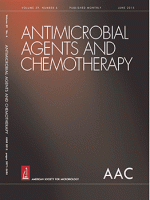Authors have pulled a paper on an antifungal drug that is potentially toxic because it lacked final approval from their institution.
The study describes a patient who had experienced liver toxicity after taking voriconazole. During the study, the authors re-administered the drug to the patient using “a slow dose titration.” But their institution didn’t approve the study before it was published online.
Here’s the retraction note for “Successful Rechallenge with Voriconazole following Medication-Induced Hepatotoxicity,” published in Antimicrobial Agents and Chemotherapy.
The manuscript published ahead of print as doi:10.1128/AAC.04976-14 has been retracted pending organizational management approval from the authors’ institution.
The paper — cited only once, by the retraction note, according to Thomson Reuters Web of Science — was published in May, 2015, and retracted in December.
The authors Craig Sastic and John Ahrens both work at Inspira Health Network in New Jersey. A spokesperson for Inspira told us:
This study was submitted for publication prior to it going through Inspira’s internal review and approval process. It has been rescinded to allow that process to take place and is currently under review. We have no further information at this time.
Editor in chief Louis B Rice told us more of the backstory:
AAC does not require institutional approval, but authors may need permission/approval from their institution before a paper can be published. The authors became aware that they had received preliminary, but not final, approval for the publication of this study only after it had been accepted and placed on line. Since they did not have final approval from their institution, they requested a retraction. AAC complied with their request and may allow resubmission of the manuscript once the institutional concerns have been resolved.
We have tried to reach Sastic and Ahrens for comment, and we’ll update this post with anything else we learn.
Like Retraction Watch? Consider making a tax-deductible contribution to support our growth. You can also follow us on Twitter, like us on Facebook, add us to your RSS reader, sign up on our homepage for an email every time there’s a new post, or subscribe to our new daily digest. Click here to review our Comments Policy. For a sneak peek at what we’re working on, click here.

It is not clear that lack of institutional approval is sufficient to justify retraction, even when authors request it. Is institutional approval another term for censorship? At the very most, a note could have been added to the published version, indicating that such approval had not been obtained in its final form. Should institutions have the right to determine what researchers may publish?
Albert, as I understand these matters and in most situations in the US, it is the institution that usually owns the laboratory facilities and equipment even when some of these have been obtained via external funding by the individual researcher/group. Some funding entities may have some claim to the data generated with their funds, but otherwise the institution has ownership of the data with the researcher being granted custody of them. Thus, technically, institutions do have a right to determine what researchers publish, though in the context of academic freedom, such right is seldom exercised.
I would appreciate others’ elaboration or correction if any of the above is not quite right.